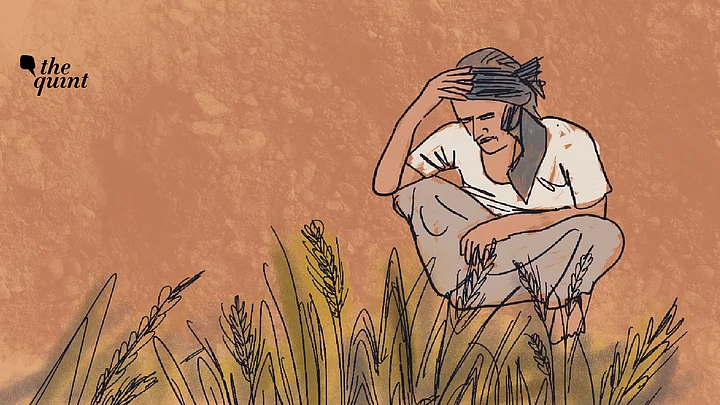The Seeds Bill 2019, likely to be tabled in the ongoing winter session of Parliament, may further increase problems for farmers, say experts who have gone through the provisions of the proposed legislation.
Currently, the sale and distribution of seeds in India is regulated by the Seeds Act 1966 ensuring better quality of seeds are used by cultivators.
In the last one decade there have been two attempts, when the UPA government was in power, once in 2004 and second time in 2010, to introduce amendments to the 1966 law.
In October 2019, the NDA government put out the draft of the new Seeds Bill 2019 seeking suggestions from experts.
Problem With the Clause on Compensation
One of the contentious clauses in the proposed Bill is that of compensation in case the farmer suffers a loss due to poor quality of seeds.
Clause 21 of the Seeds Bill 2019 states:
“If, such registered seed fails to provide the expected performance under such given conditions, the farmer may claim compensation from the producer, dealer, distributor or vendor under the Consumer Protection Act, 1986.”
The fact that a farmer will have to approach a court which will require him to follow-up with the case for years, is something, that the activists are not comfortable with.
Speaking to The Quint, Bengaluru-based activist Kavitha Kuruganti says:
“It (draft bill) asks them (farmers) to seek redress in another legislation. The Consumer Protection Act is notoriously difficult for an ordinary, rural Indian. It requires Bills and other paperwork to be in order. It is also expecting a farmer to actually compete with money power that a corporate seed entity has.”Kavitha Kuruganti, Coordinator, Alliance for Sustainable & Holistic Agriculture
There is no provision of any compensation under the current law and hence the proposed Bill should have been considered as an improvement.
But activists feel that it’s the state government which should step in and set up block-level or taluka-level committees to address issues around compensation in case of crop failure.
The apprehensions regarding litigation are not entirely unfounded. According to a news report, as of September 2018, a total of 3,32,462 complaints were pending at district consumer courts while 20,240 cases were pending at the National Commission.
No Provision for Price Control
Another concern regarding the Seeds Bill is that of price control. While the new Bill has provisions for state-level committees monitoring the quality of seeds, farmer leaders feel that government intervention is needed to offset the high price claimed by private players in the seed industry.
According to KV Biju, national coordinator of the Rashtriya Kisan Mahasangh, the experience with Bt cotton seeds has not been so good and thus, measures to regulate price should have been included in the proposed law.
“There was an increase in the price of Bt cotton seeds. So then the Maharashtra government had to intervene. We want a provision on price control in this Act otherwise it will seriously affect farmers.”
For instance, Maharashtra has its own Cotton Seed Act 2009 that caps the price of cotton seeds across the state.
For crops other than cotton, farmers can take recourse to consumer courts in case a particular brand of seed fails to deliver.
Seed Bill Silent on Crop Diversification
There is almost no mention of crop diversification in the Bill which might help farmers in choosing alternatives other than the traditional crops.
One of the criticisms against India’s green revolution has been that it compelled farmers to rely on same variety of seeds which was in demand and assured profits. The Seed Bill is silent on the issue of crop variety.
“Earlier India has had more than one lakh rice varieties and 17,000 wheat varieties. We lost 70-80 percent of it in the name of green revolution.”KV Bijju, Coordinator, Rashtriya Kisan Mahasangh
‘The Seed Bill by itself may not do much to provide greater diversity for the end consumer’, says Kavitha Kuruganti emphasising on the need to overhaul the cropping patterns adopted in India especially after the green revolution.
“A lot of traditional seeds have not been evaluated for their nutritional qualities as yet. They have not been put into the mainstream seed production and seed distribution systems in the country.”Kavitha Kuruganti, Activist
The farmer leaders are already up in arms against the government demanding revamp of crop compensation scheme and have called for a nation-wide ‘Grameen Bandh’ on 8 January 2020. With the slowdown taking a toll on rural economy, it’s feared that the Seed Bill could further add to the woes of farmers.
